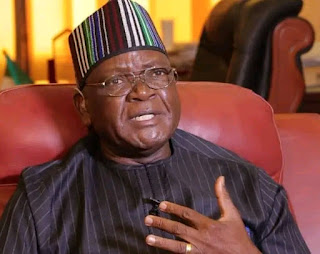Maldives Quit The Commonwealth Over Alleged Human Rights Violation
The tropical nation of Maldives has quit the commonwealth saying the inter-governmental organisation had taken punitive actions against the Maldives despite its progress in strengthening democratic institutions.
The South Asian country announced on Thursday its decision to leave in a statement via its Ministry of Foreign Affairs.

The statement said:
“The Maldives joined the Commonwealth in 1982 with high hopes and expectations, convinced that the organisation will be an arena for coordinating critical issues that the member States, in particular, the smallest members of the organisation face.
Since 2012, the Government of Maldives has been giving maximum cooperation to the Commonwealth, shown maximum transparency, and engaged with the Commonwealth at the highest levels.
The Government had high hopes that such level of engagement will produce fruitful results. Regrettably, the Commonwealth has not recognised that progress and achievements that the Maldives accomplished in cultivating a culture of democracy in the country and in building and strengthening democratic institutions.
The Government of President Abdulla Yameen Abdul Gayoom has enacted a total of 110 pieces of legislations. Out of which, 94 legislations were directly related to the core values set out in the Commonwealth Charter. An overwhelming majority of these legislations (69 out of 94) were specifically designed to promote human rights, to strengthen democratic governance, and to reinforce the separation of powers. These achievements have resulted in strengthening the rule of law and produced tangible outcomes in strengthening democratic institutions in the country.
The Commonwealth has sought to take punitive actions against the Maldives since 2012 after the then President of Maldives resigned, and transfer of power took place as per the procedures set out in the Constitution. The Commonwealth’s decision to penalise the Maldives was unjustified especially given that the Commission of National Inquiry (CoNI), established with the help of the Commonwealth, found that the transfer of power in the Maldives was consistent with the constitutional provisions.
Since then, the Commonwealth Ministerial Action Group (CMAG) and the Commonwealth Secretariat have treated the Maldives unjustly and unfairly. The Commonwealth has sought to become an active participant in the domestic political discourse in the Maldives, which is contrary to the principles of the Charters of the UN and the Commonwealth. The CMAG and the Commonwealth Secretariat seem to be convinced that the Maldives, because of the high and favourable reputation that the country enjoys internationally, and also perhaps because it is a small State that lacks material power, would be an easy object that can be used, especially in the name of democracy promotion, to increase the organisation’s own relevance and leverage in international politics”.




That's what you get when tyrants lead the people.
ReplyDelete